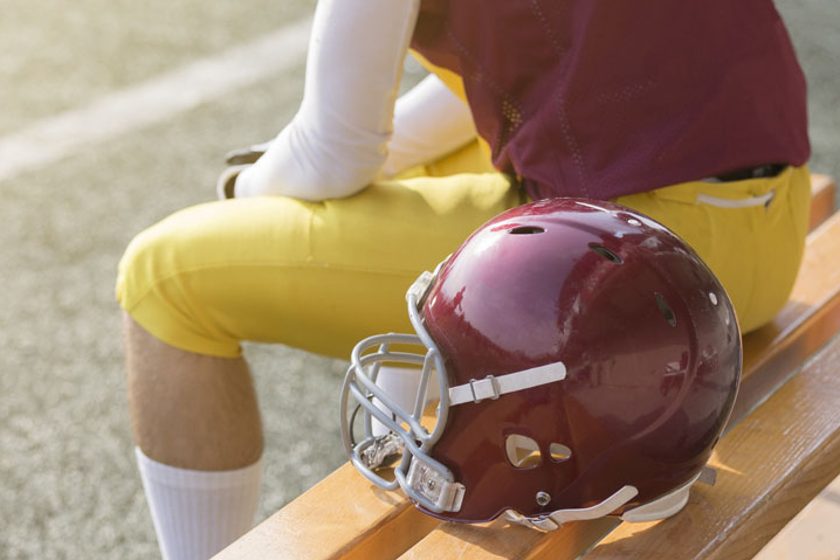By Children’s Health | Contributor
When cases of COVID-19 first began to spread across the U.S., young athletes had to adjust quickly to online school – and a canceled spring sports season. Now, as schools navigate reopening, athletes are still adjusting and tentatively preparing for a new sports season.
Still, athletes are facing numerous changes and uncertainties. Will fans be allowed to watch games? Will they play fewer games? What safety measures will they have to follow? What if their season is ultimately canceled?
Though we don’t know exactly how this sports season will play out, we know that it won’t be typical – which could be stressful for young athletes. Parents and coaches should be ready to support athletes and help them stay positive as things continue to change.
Kimberly Williams, LCSW, a clinical social worker with Children’s Health℠ Andrews Institute for Orthopaedics & Sports Medicine, shares tips to help athletes navigate this school year and their changing sports seasons.
Tips to support athletes during COVID-19
1. Be ready to offer support
Athletes might experience a range of emotions with changes to their seasons: from grief to disappointment.
“Often, an athlete views their sport as their identity,” says Williams. “Having a cancellation or postponement likely puts this population at higher risk for mental health challenges when they are unable to fulfill these self-defining activities.”
Some athletes will experience grief over the loss of a normal sports season. Grief can look different for all teens and children. It could present as anger, denial, disbelief or depression. Offer support to athletes showing these emotions by listening to how they feel. These emotions may also change as athletes work through their emotions.
You can help athletes develop coping strategies and mental resilience to these changes during this time. Give them space to express their feelings and work through them without judgment. Help them participate in any other hobbies they have or other activities they enjoy, which can help them realize they have other things in their lives they love.
2. Lead by example
Children and teens will look to adults for how to react and handle the changes that COVID-19 is causing. Teach them that it’s important to stay positive and focus on things they can control, such as wearing a face mask and practicing social distancing.
You should also reinforce any decisions that the school or teams make for athlete safety, whether that is changes to practice schedules or changing rules of the game. Encourage your child to do the same to help keep their teammates safe.
By remaining confident and positive, you can help your athlete do the same.
3. Let athletes know they’re not alone
Millions of athletes across the country are facing the same challenges related to their sports season, whether it is delayed or canceled. It can help your athlete to know they aren’t alone during this time. Sharing their frustrations with people who understand can help them cope.
Athletes may be afraid that they will fall behind in their sport or not be able to perform as well as they used to. Remind them that athletes across the country are experiencing the same uncertainties. Athletes can obtain their competitive edge and avoid injury when they return to sports by staying active at home.
4. Adopt a different perspective
Instead of focusing on athletic skills they may be losing if their season is affected, athletes should focus on what they can do now to take care of themselves as a whole.
“The theoretical goal post can represent so much more than success as an athlete,” says Williams. “Character building during times of adversity will serve athletes well both in the classroom and during competition.”
Williams suggests that athletes take advantage of this time to learn a new skill not related to their sport. They may take up a new hobby, for instance, or learn to play a musical instrument.
Athletes can also take this time to do what they usually couldn’t do in the season. This may be the way to make the best of a difficult situation.
5. Try to help calm fears
For some athletes, the idea of returning to school and playing while coronavirus continues to spread can be scary. They may realize that they have closer contact with other people during their sport and feel their risk of getting the virus is even higher. Remind them to focus on the steps they can take to reduce risk of infection and stay safe during return to play.
“It is okay to have a healthy amount of fear in life,” says Williams. “That said, if fear begins to take over for athletes as they return to their sport, it is important to provide mental health support to manage these thoughts and feelings before they adversely affect their quality of life and performance.”
If an athlete is struggling with fear, grief or disappointment, seek professional support to help them address these issues. Therapy can help them cope and become stronger in life and in their sport.
Learn more: See more resources to keep your family healthy at the Children’s Health COVID-19 hub.


